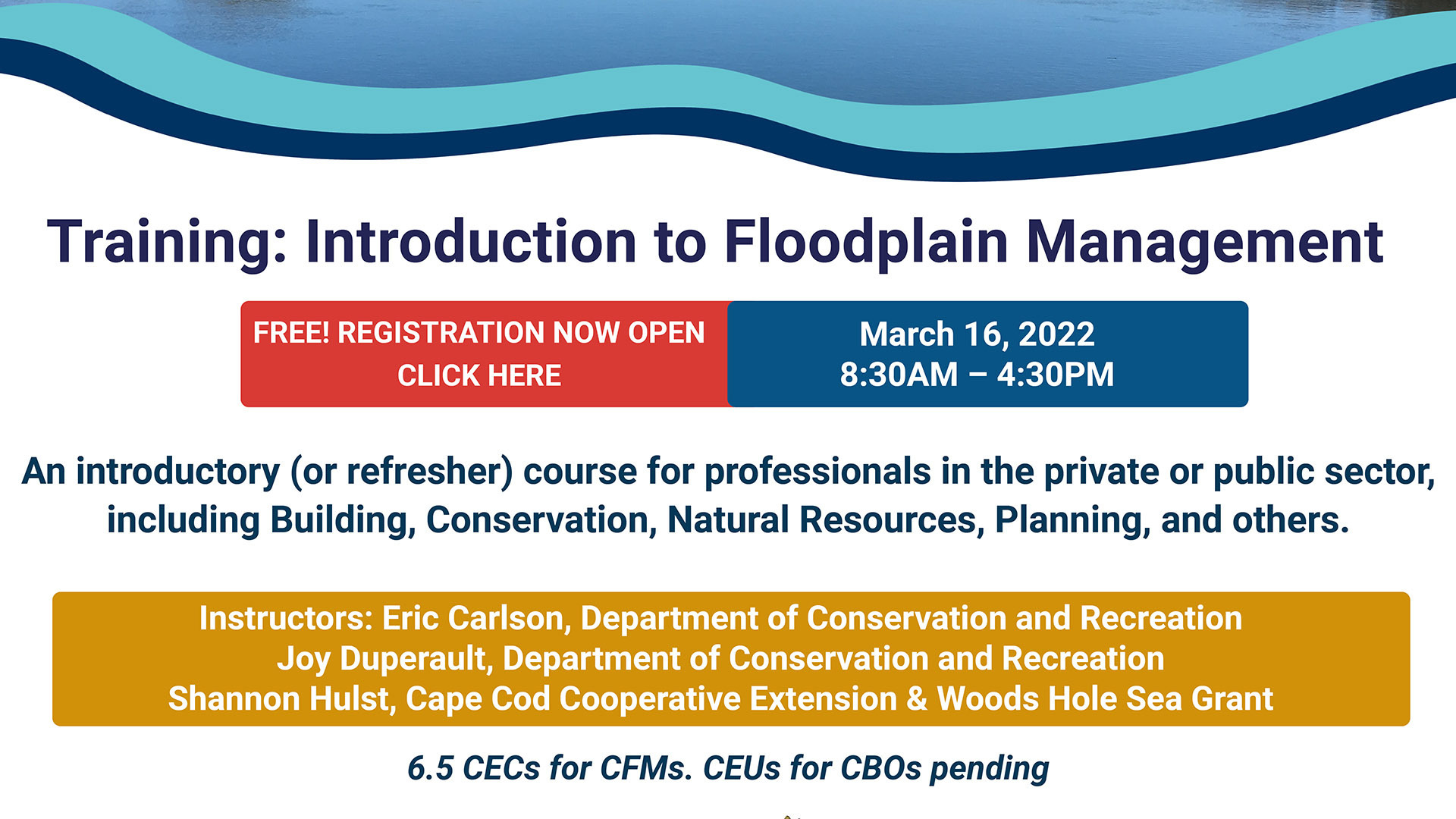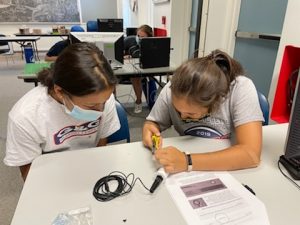February 2022
Letter From The Director
Business Continuity Planning Program Scheduled
National Flood Insurance Program Updates
Community Rating System Updates
Upcoming Floodplain Management Training
Funded Researchers Working on Real-Time 'Shark Forecast'
Working Toward Shellfish More Robust to Disease Pressures
Girls in Science Now Accepting Applications for 2022 Sessions
Dune Sign Student Art Contest Underway
Massachusetts Marine Educators Association Meeting Planned for April
2022 Knauss Fellows Begin Their Journeys
2023 Knauss Fellowship Application Period Remains Open
LETTER FROM THE DIRECTOR
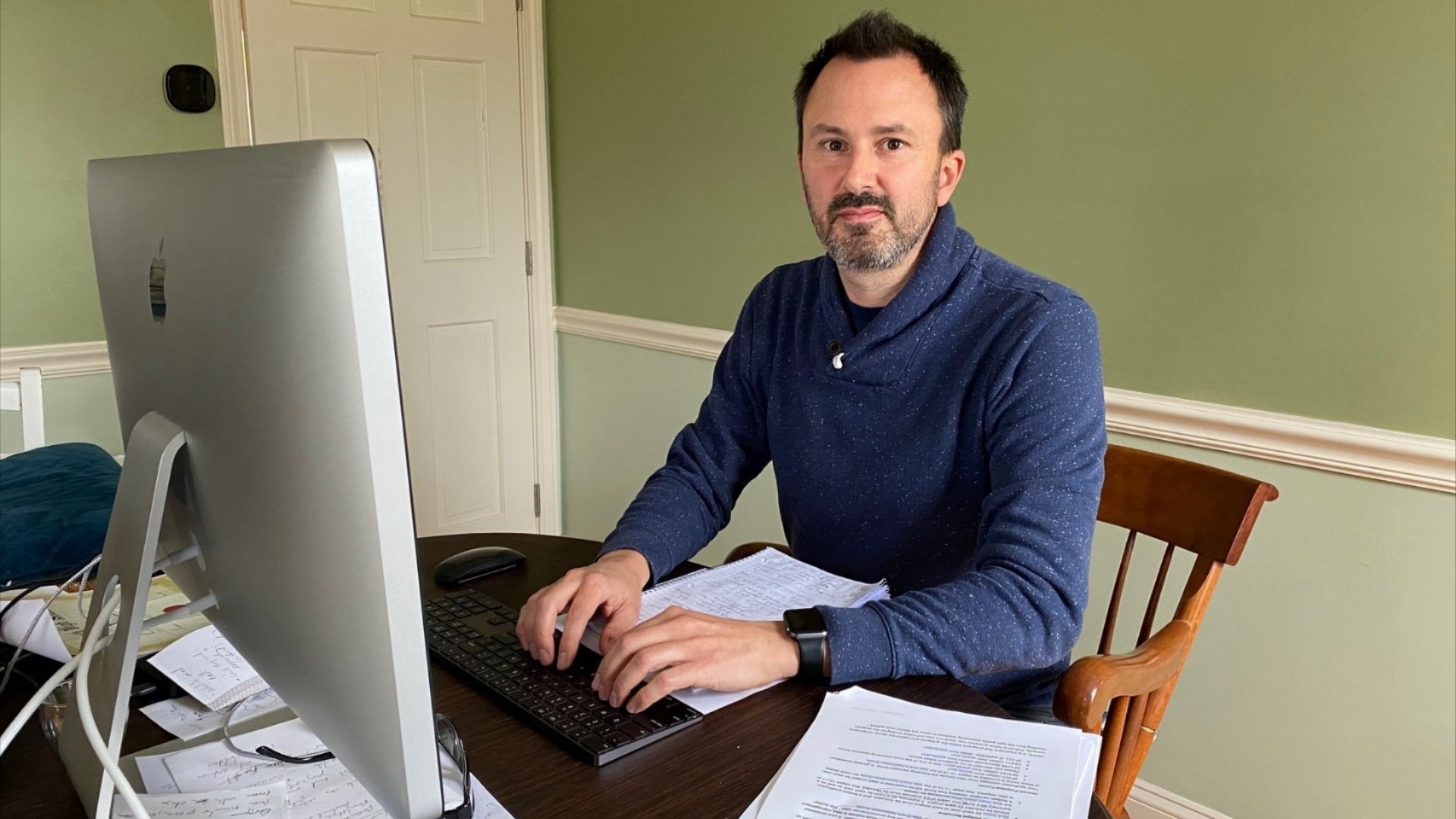
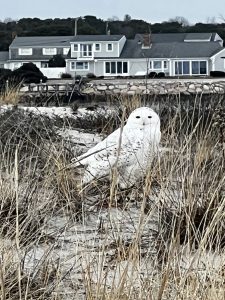
COASTAL RESILIENCE
Business Continuity Planning Program Scheduled

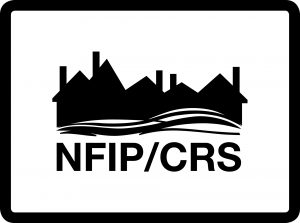
National Flood Insurance Program Updates
|
Beginning in April 2022, when anyone with a flood insurance policy through the National Flood Insurance Program renews, they will be rated under a new system called Risk Rating 2.0.
This is the first time since the program’s inception that the program has changed the way it assesses policyholders’ risk. The intention is to bring the system more in line with the approach of the private markets, and to create a more fair rating system.
Broadly, the new rating system will factor in distance to source of flooding, replacement cost of the house, and the type and elevation of the house. This will make it so that those lower-value structures that are further back from the water, wetland, river, etc. will pay lower rates than high-value structures located on the waterfront.
For more information, visit https://www.fema.gov/flood-insurance/risk-rating.
|
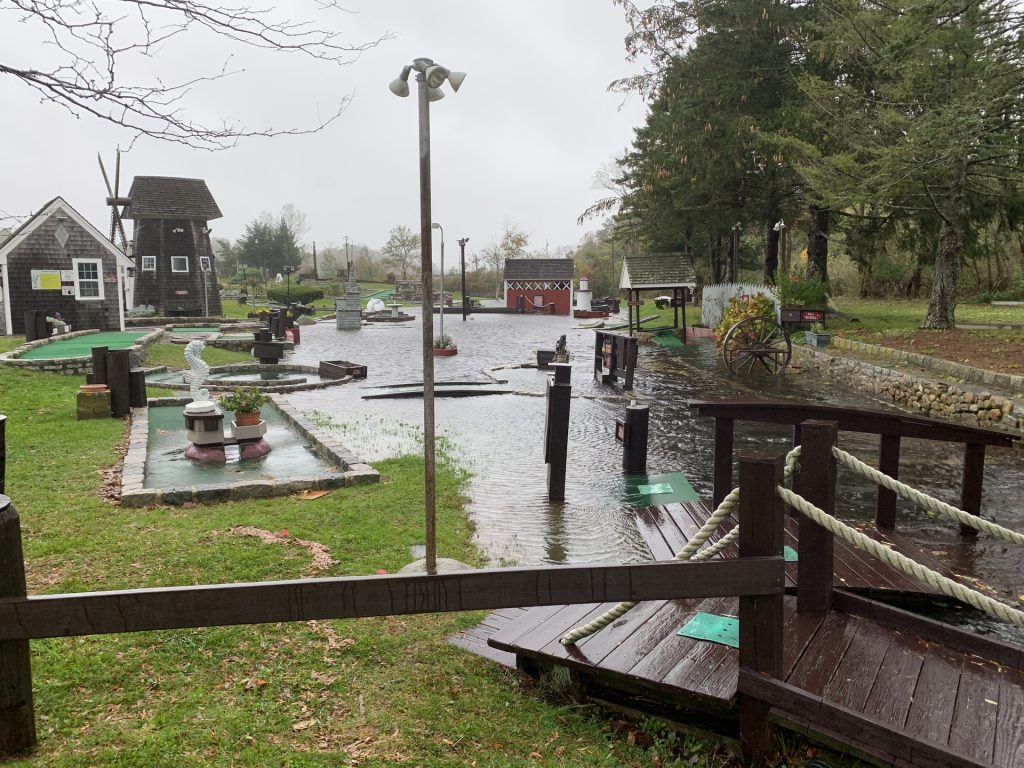
Community Rating System Updates
|
As we reported in our last newsletter, Chatham and Wellfleet successfully concluded their five-year Community Rating System (CRS) audits in 2021 to remain in the program.
We have since learned that, pending final approval from FEMA, both towns advanced in the program from a 10 percent discount to a 15 percent discount.
This means that, starting in October 2022, every National Flood Insurance Program policyholder will get a 15 percent discount on their premiums thanks to the efforts of town staff with support from Woods Hole Sea Grant/Cape Cod Cooperative Extension.
|
Upcoming Floodplain Management Training
RESEARCH
FUNDED RESEARCHERS WORKING ON REAL-TIME 'SHARK FORECAST'
|
Megan Winton of the Atlantic White Shark Conservancy (AWSC) and Greg Skomal of the Massachusetts Division of Marine Fisheries are working on an exciting and timely Woods Hole Sea Grant funded project to develop and test a real-time white shark forecast system for Cape Cod.
Winton and Skomal will develop and evaluate near real-time ‘shark forecast’ maps that can be disseminated by town and beach managers and via the AWSC’s ‘Sharktivity’ app to alert beachgoers when conditions indicate a high probability of white shark presence.
The concept is based on acoustic telemetry data from tagged sharks and satellite-derived sea surface temperature (SST) and water turbidity data. Available tagging data suggest that temperature is a factor in the distribution of sharks, and that variations in ambient light levels due to cloud cover and water turbidity are linked to when and how the sharks hunt. The scientists plan to test the concept by retroactively forecasting the probability of white shark presence in previous years and validate it using available tagging data.
The work is part of the on-going efforts within Massachusetts to "mitigate the growing potential for shark-human conflict," according to the researchers, which includes other collaborations.
Visit our funded projects page for more on this work and others currently underway.
|
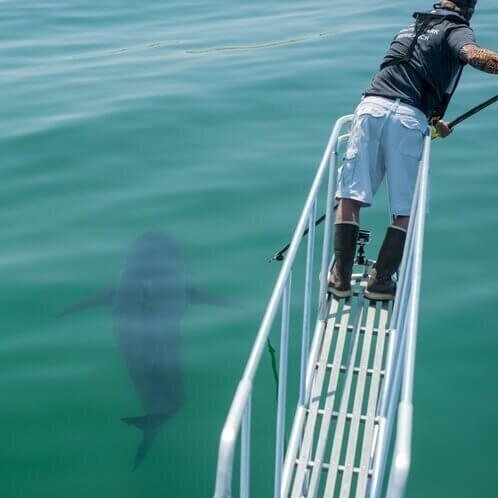
FISHERIES AND AQUACULTURE
Working Toward Shellfish More Robust to Disease Pressures
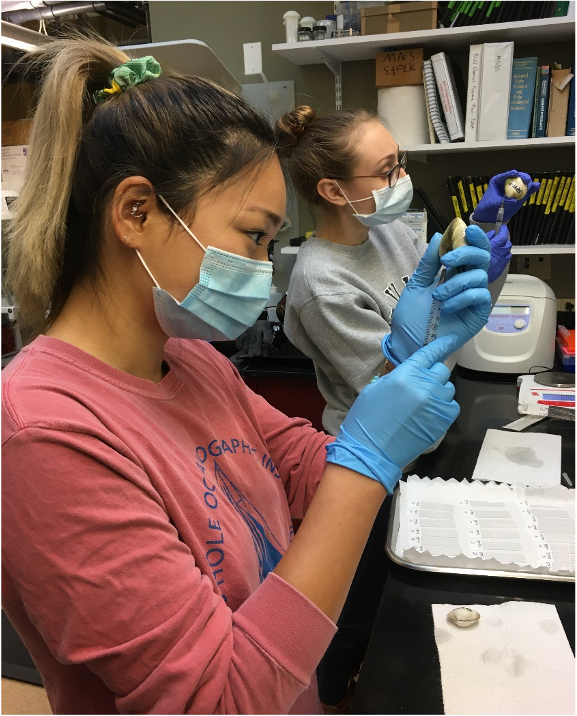
EDUCATION
GIRLS IN SCIENCE NOW ACCEPTING APPLICATIONS FOR 2022 SESSIONS
DUNE SIGN STUDENT ART CONTEST UNDERWAY
Woods Hole Sea Grant invites Massachusetts students in grades K-12 to participate in our Dune Sign Student Art Contest.
We will use the artwork from the first place winners in grade divisions K-4, 5-8, and 9-12 on our signs at local Cape and Southeastern Massachusetts beaches to educate visitors about coastal dunes, their fragility, and need for protection from foot traffic. First, second, and third place winners in each category will also receive Amazon gift cards.
Contest rules and details as well as background information to learn more about the importance of coastal dunes can be found on our website.
We encourage teachers to use the background material as well as sample classroom lessons on dunes and dune grass to educate their students while encouraging them to turn their knowledge into art. The contest ends March 7th.
Contact: Grace Simpkins, gsimpkins@whoi.edu
MASSACHUSETTS MARINE EDUCATORS ASSOCIATION MEETING PLANNED FOR APRIL 30
The next Massachusetts Marine Educators Association Annual Conference will be on April 30th at the Woods Hole Oceanographic Institution.
The focus is ocean and coastal data. Visit the MME website for more details as they come out.
FUNDING AND FELLOWSHIPS
2022 KNAUSS FELLOWS BEGIN THEIR JOURNEYS
Woods Hole Sea Grant is excited to be the sponsor program for three 2022 John A. Knauss Marine Policy Fellows from Massachusetts who started on Feb. 1. They are among 68 fellows placed in federal government offices in Washington, D.C.
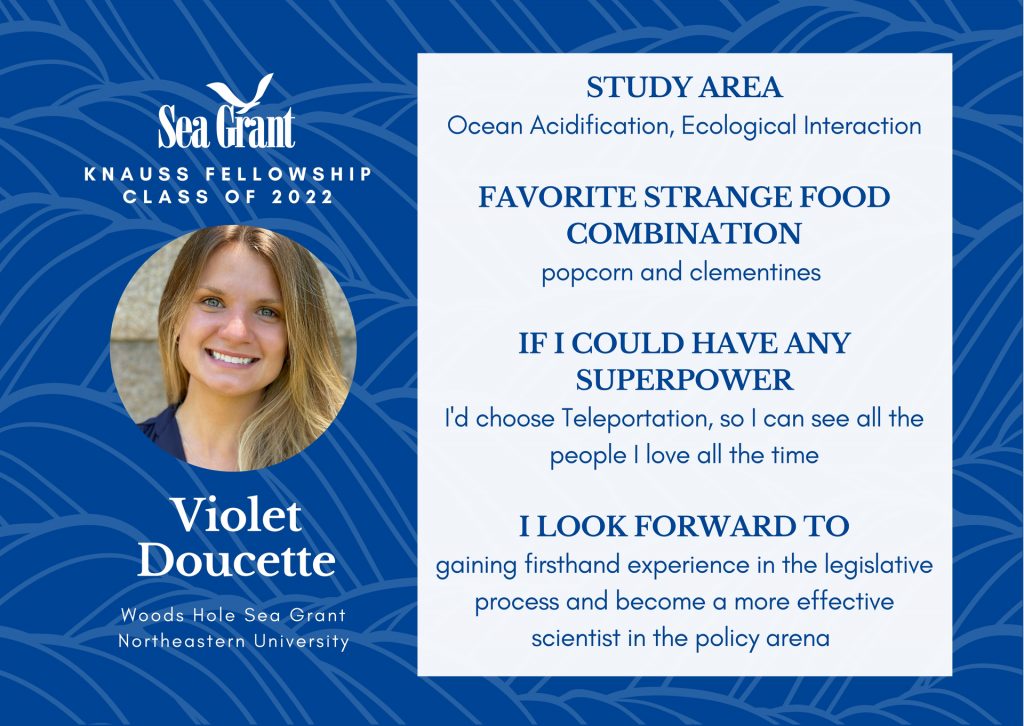
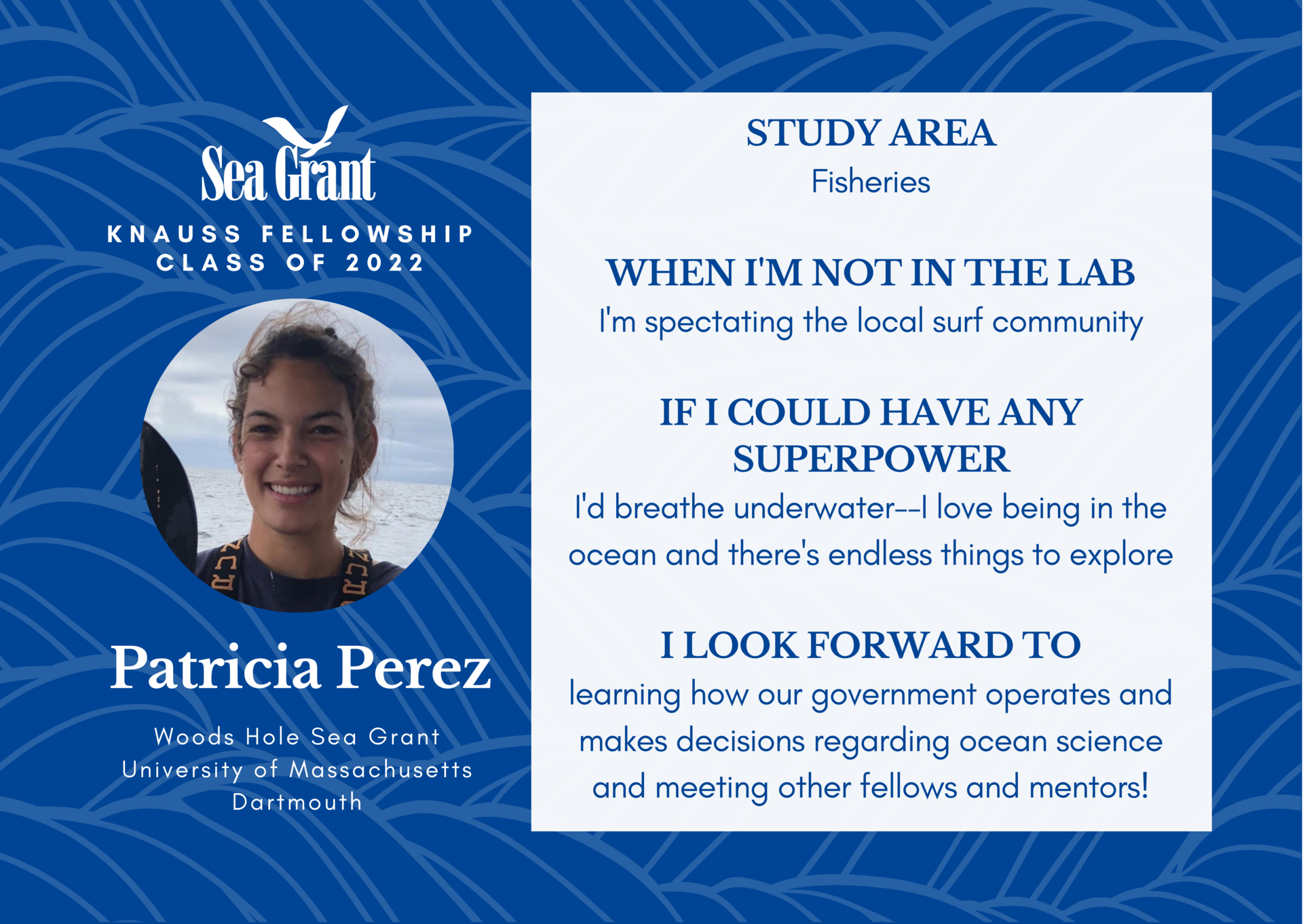
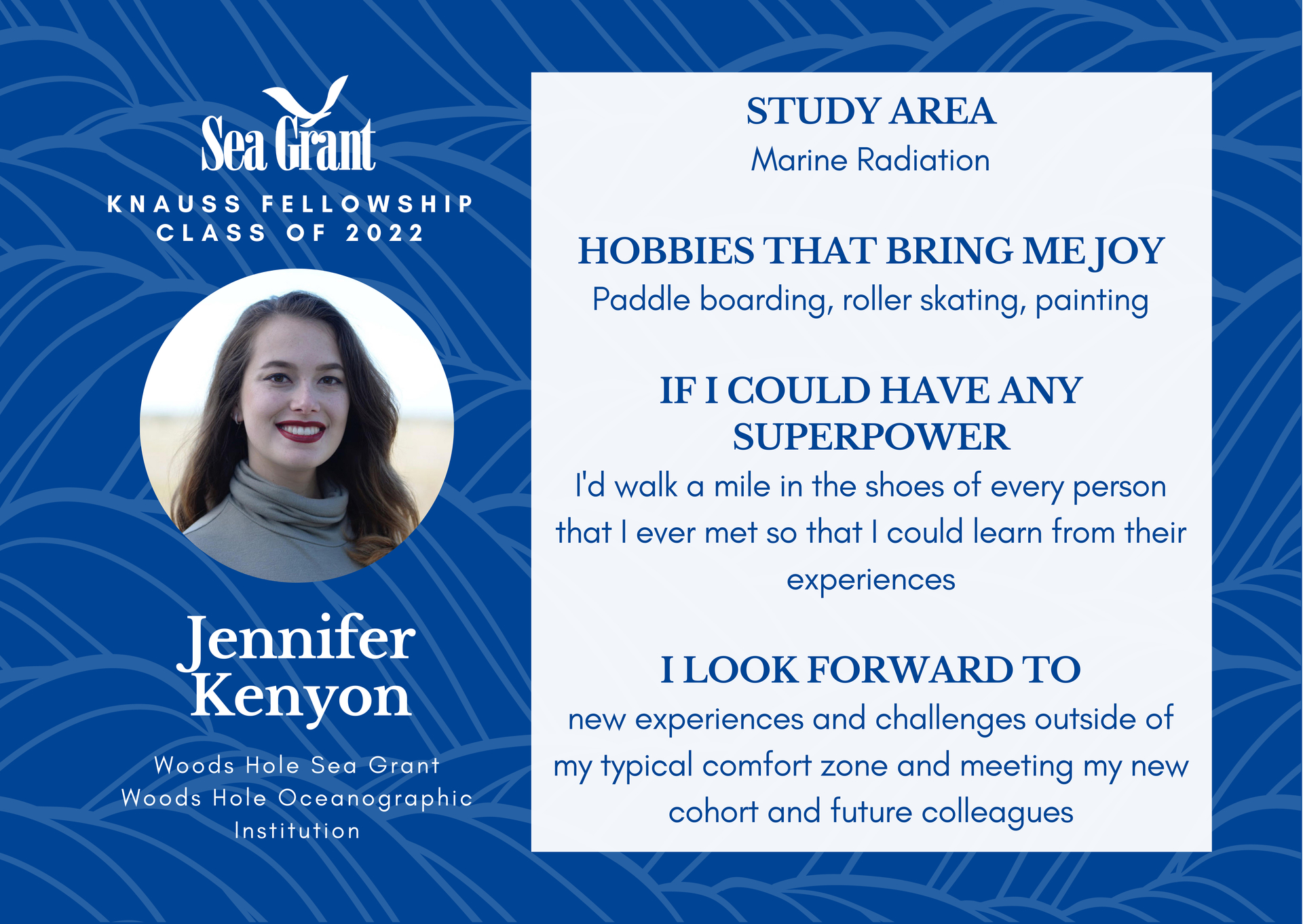
2023 Knauss Fellowship Application Period Remains Open
Donate to Woods Hole Sea Grant
Click the donation link on the Woods Hole Sea Grant website and directly support the important coastal research, extension, and education at Woods Hole Sea Grant. We thank you in advance!
Keep In Touch
Subscribe to the Coastal Impacts newsletter
Sign up for our quarterly newsletter by emailing us at seagrant@whoi.edu
Join the SEMCO listserv
Join the Southeastern Massachusetts Coastal Organizations (SEMCO) listserv for information on events, programming, and items of note from marine-related organizations in the region.

